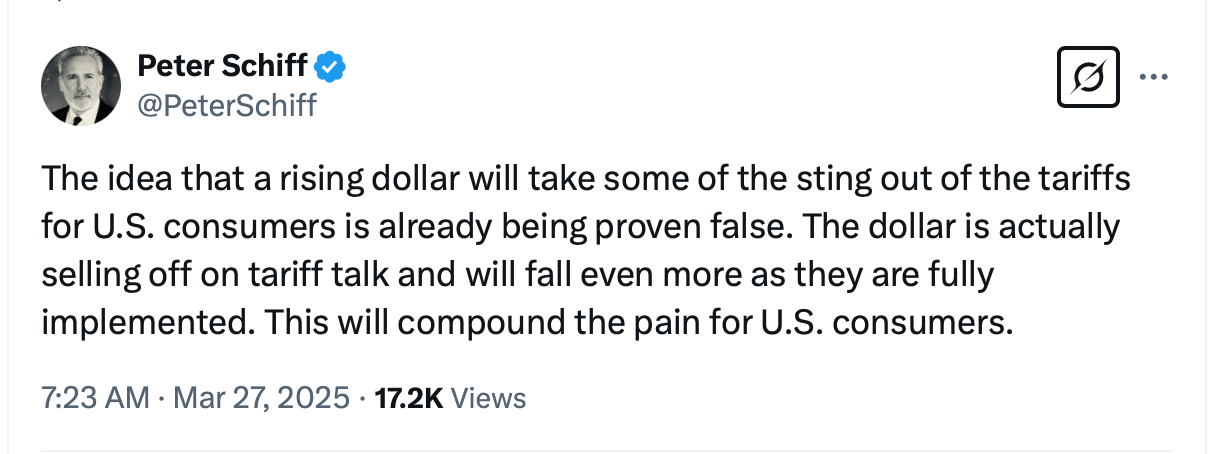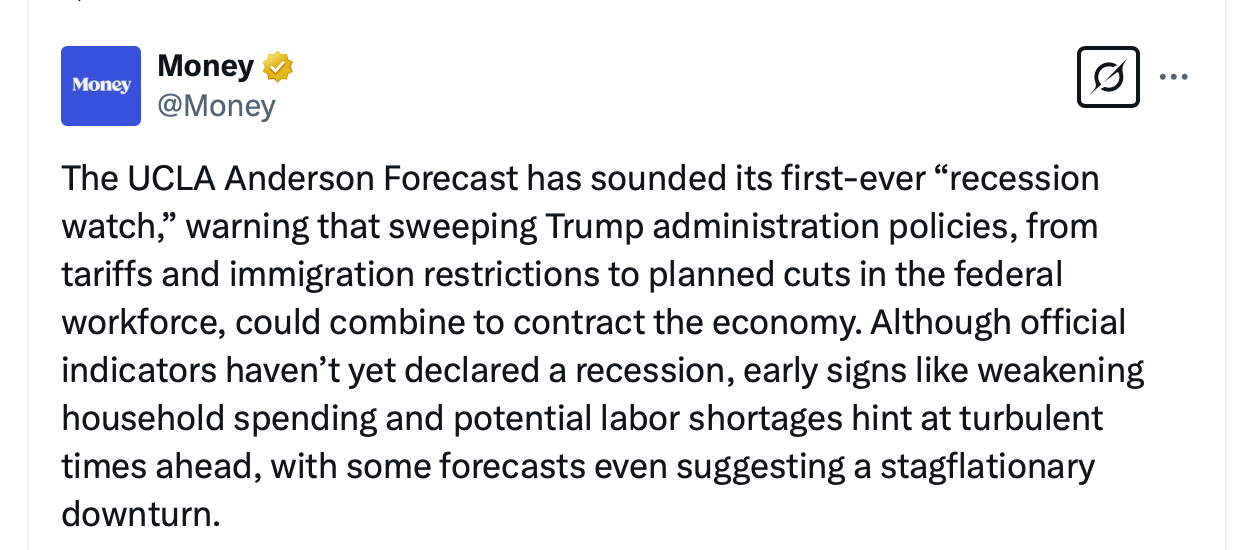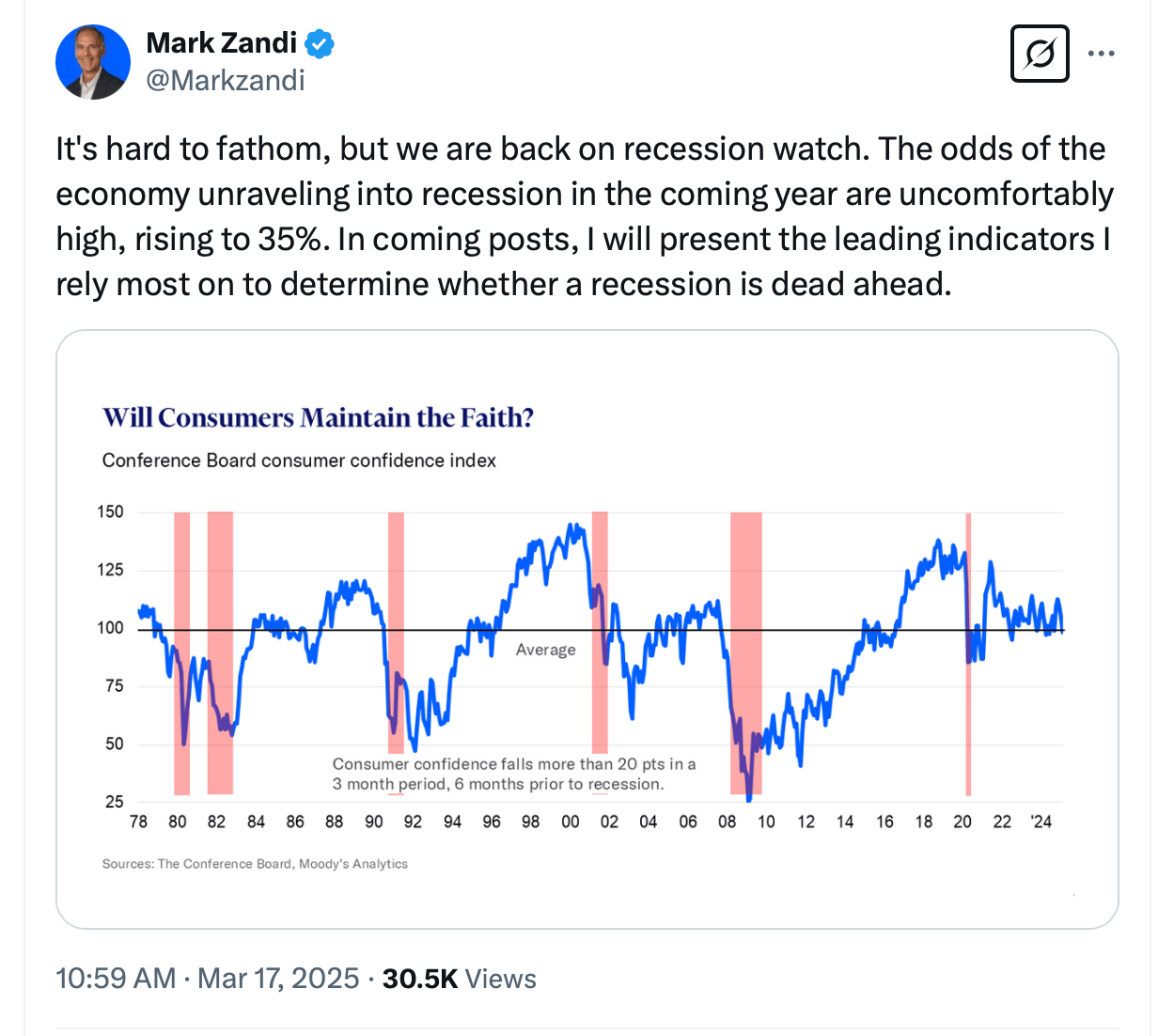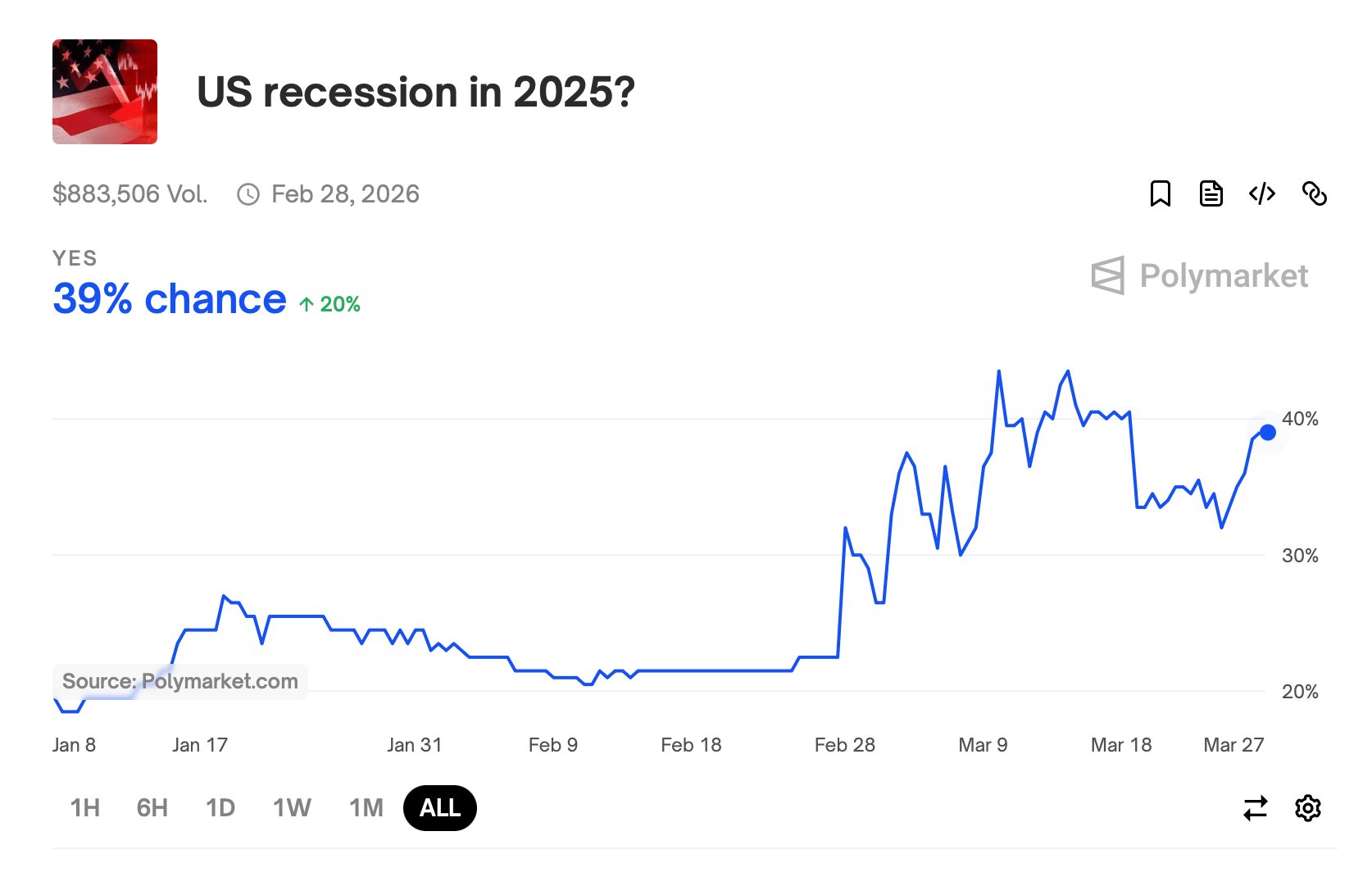The possibility of a U.S. recession in 2025 has ignited fierce debate among economists, financial institutions, and policymakers, with forecasts split between warnings of an imminent downturn and projections of continued growth. At the heart of the discourse lie conflicting interpretations of trade policies, market indicators, and the resilience of the U.S. dollar.
A recession is typically defined as two consecutive quarters of negative GDP growth, though the National Bureau of Economic Research (NBER) also considers broader factors like employment and industrial production. As of March 2025, the economic landscape remains fraught with uncertainty. President Donald Trump’s tariff policies, coupled with fluctuating consumer confidence and market volatility, have intensified scrutiny of recession risks.

Economist Peter Schiff, CEO of Euro Pacific Capital, has emerged as the most vocal proponent of a 2025 recession. Just recently, Schiff warned of a looming U.S. dollar crisis that could crash the economy, triggering soaring consumer prices and long-term interest rates. His prediction hinges on a collapse in confidence in the dollar, which he argues is overvalued and vulnerable to a sharp correction. Unlike many peers, Schiff’s stance is absolute, insisting a recession is inevitable rather than probabilistic.
Other experts have adopted a more measured approach. Bruce Kasman, JPMorgan’s chief global economist, assigns a 40% chance of a 2025 recession, citing risks from trade policies and potential damage to the U.S.’s exorbitant privilege as the global reserve currency. Similarly, Yardeni Research, led by economist Edward Yardeni, raised its recession odds to 35% in March 2025, noting rising anxieties but stopping short of insistence. Both emphasize that economic forecasting remains inherently uncertain.
In contrast, the Federal Reserve’s March 2025 projections paint a brighter picture, forecasting 1.9% GDP growth for the year. The Fed’s baseline scenario dismisses recession concerns, pointing to steady employment and industrial output. However, its GDP Now model flagged a potential Q1 2025 contraction of 1.5%, sparking brief alarm. Officials caution that a single quarter of negative growth does not equate to a recession, though it underscores the fragility of current forecasts.

The UCLA Anderson Forecast has linked recession risks directly to policy outcomes. Economist Clement Bohr warned in March 2025 that fully implementing Trump’s proposed tariffs and federal job cuts could trigger sector-wide contractions. Meanwhile, analytics firm Expana predicted a global recession beginning in spring 2025, driven by synchronized slowdowns in major economies. Goldman Sachs and Morgan Stanley have also downgraded U.S. growth forecasts, though their recession probabilities remain lower.

Moody’s Analytics chief economist Mark Zandi highlighted rising mortgage delinquencies among homeowners with Federal Housing Administration-backed loans as a potential red flag. The Conference Board’s Consumer Confidence Index, meanwhile, fell sharply in early 2025, reflecting dwindling short-term expectations for incomes, business conditions, and employment. Financial institutions like HSBC, Citi, and Barclays have downgraded U.S. equity outlooks, citing tariff-related uncertainties and their drag on corporate earnings.

As of March 27, 2025, speculative traders on Polymarket’s prediction platform calculate a 39% likelihood of America sliding into recession this calendar year.
Trump’s policies loom large in recession debates. His administration’s proposed and implemented tariffs on imports, paired with cuts to federal jobs, have drawn criticism from economists who argue such measures could stifle trade, inflate consumer prices, and erode business investment. The CNBC CFO Council reported that 60% of surveyed chief financial officers view policy uncertainty under Trump as a key recession driver, with many bracing for supply chain disruptions.
A Deutsche Bank survey pegged the 12-month U.S. recession probability at 43%, while Harvard economist Kenneth Rogoff estimates 30-35% odds, attributing risks to spending cuts and tariff fallout. Jeffrey Gundlach of DoubleLine Capital offered a starker view, placing the likelihood at 50-60%. A swelling consensus among economists and institutions raising alarms about 2025 recession threats points to deepening prudence as tectonic pressures—from dollar volatility to fractured supply chains—anchor current discussions.
Though the U.S. central bank maintains guarded optimism, cautionary notes from figures like Schiff, Yardeni, and Expana, alongside major financial institutions, highlight anxieties that policy errors and waning consumer trust might trigger instability. Their collective vigilance mirrors an economy walking a tightrope between adaptability and structural stress. As authorities such as Gundlach, Rogoff, and Moody’s intensify recession warnings, 2025’s economic trajectory increasingly hinges on nimble policymaking confronting mounting challenges.
Tariffs, fiscal contraction, and worldwide deceleration compose a hazardous trifecta that even upbeat projections cannot easily discount. With organizations revising growth estimates downward and families preparing for uncertainty, discussions now pivot not on whether crises will emerge, but on the magnitude with which geopolitical tremors and legislative decisions might precipitate contraction.
免责声明:本文章仅代表作者个人观点,不代表本平台的立场和观点。本文章仅供信息分享,不构成对任何人的任何投资建议。用户与作者之间的任何争议,与本平台无关。如网页中刊载的文章或图片涉及侵权,请提供相关的权利证明和身份证明发送邮件到support@aicoin.com,本平台相关工作人员将会进行核查。




